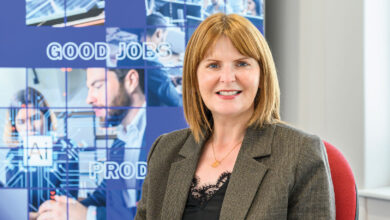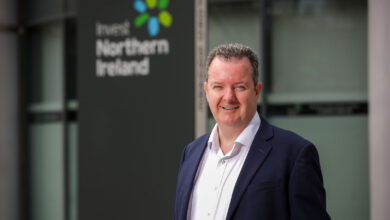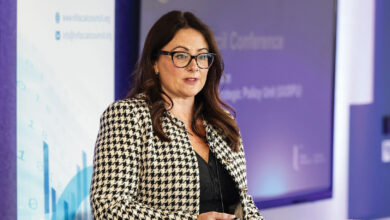Global Irish Economic Forum
 Michael McKernan looks at how the event has generated new economic links with the Irish diaspora.
Michael McKernan looks at how the event has generated new economic links with the Irish diaspora.
The Global Irish Economic Forum, convened by the Irish Government’s Department of Foreign Affairs and Trade held its third main conference in Dublin in October with the usual collection of leading Irish-Americans and celebrities in attendance.
The forum is the brainchild of popular economist and broadcaster David McWilliams who argued, in a series of books about the rise and fall of the Celtic Tiger, that Ireland could do much more to leverage economic benefit from a huge untapped resource – the Irish diaspora.
Some 70 million people worldwide claim some measure of Irishness and many of them, according to McWilliams, have a desire, and are in a position, to support Ireland as it struggles towards economic recovery.
The Department of Foreign Affairs bought into McWilliams’ analysis and the first Global Irish Economic Forum was convened in Dublin in September 2009. Initially, the event was about securing the concept without being overly demanding on the Irish-American big-hitters in attendance.
The weekend programme for participants included plenty of face-time with then Taoiseach Brian Cowen and included a gala dinner hosted by President Mary McAleese. The proceedings concluded on the Sunday afternoon with delegates taking a VIP seat at the all-Ireland football final in Croke Park.
However after the inaugural event, the forum got down to some real work.
A further initiative was launched creating the Global Irish Network bringing together powerful and influential ‘Irish’ individuals around the world who were interested in supporting economic recovery in Ireland.
Out of this initiative, following a further forum in 2011, came the idea of The Gathering – Ireland’s biggest ever tourism initiative which has run throughout 2013 and boosted tourism numbers despite the world downturn. ‘The Gathering’ also built a huge database of Irish-Americans and through new technology and genealogical research connected the ‘global Irish’ not only to Ireland, but to the part of Ireland where their connection first originated and to others who shared that history.
Thereafter, the work of the Global Irish Economic Forum has focused on economic intervention. A further initiative was the creation of the Global Irish Contacts Programme which links leading business figures abroad with Irish companies seeking to break into new markets and boost exports.
An offshoot programme – Connect Ireland – has targeted the creation of 5,000 new jobs in Ireland derived from harnessing Irish networks globally.
The 2013 Global Irish Economic Forum, with a direct focus on job creation, has been even more workmanlike. Over the two days, 18 working groups and six panel sessions focused on opportunities for Ireland in high-potential sectors including financial services, food and agri-tech, higher education, smart ageing technologies, social innovation and the digitisation of the global economy. For the first time, the forum included an event for 100 Irish SMEs to participate in mentoring sessions with leading international business people attending the forum.
Also for the first time, the forum held breakout sessions regionally, bringing together members of the Global Irish Network, local businesses and educational institutions in Galway, Cork and Belfast.
The Global Irish Economic Forum is not, on its own, going to transform the Irish economy but there is no doubt that the forum has been helpful – not only in terms of promotion and job creation but in creating a sense of solidarity among Irish citizens at home and abroad that working hard at economic recovery will lead to better days ahead.
Tánaiste and Minister for Foreign Affairs Eamon Gilmore said: “The Global Irish Economic Forum is a success story. It has helped to transform the way the Government does business with leading international figures who are connected to Ireland.”
Photo Credit: UNWTO





